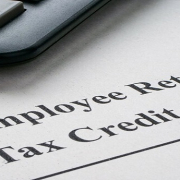IRS Resumes Sending Some Collection Notices
The IRS has resumed sending out some automated collection notices to taxpayers with outstanding balances due.
For nearly two years more than a dozen automated collection letters and notices associated with the filing of a tax return or payment of tax have been on pause. The decision was made by the IRS to suspend sending these notices until it was able to eliminate the sizable backlog of processing paper tax returns and correspondence that built up during the pandemic.
Recently the IRS, after catching up from the backlog, has started sending out the following collection notices in limited circumstances:
- Notice CP501, 1st Notice – Balance Due
- Notice CP503, 2nd Notice – Balance Due
- Notice CP504, Final Notice – Balance Due
For individual taxpayers with balances due for tax periods ending December 31, 2022, or later, the next scheduled collection notice in the IRS’s automated stream is or will soon be in the mail.
For business taxpayers a Notice CP504 is in the mail for delinquent balances due for tax periods ending August 31, 2023 or later, and for quarterly tax return (Form 941, Employer’s Quarterly Federal Tax Return) periods ending September 30, 2023, or later.
It is important for taxpayers to understand that even though they were not receiving regular notices about their balances due (during the time the IRS stopped sending notices) interest and penalties (as applicable) continued to accrue.
The IRS will likely resume sending collection notices on older delinquent tax periods in the near future. If you have outstanding tax balances – don’t wait. Start considering alternatives to resolve your tax debt now. Several options are available to help you pay your taxes including payment plans, Offers in Compromise, and a Not Collectible Status for those unable to pay. To proactively address unfiled returns and unpaid taxes, you can create or access your online account at IRS.gov.
For help, see information about notices as well as the Taxpayer Roadmap to find out where you are in the Collection process. You can also follow the Taxpayer Advocate Service’s social media accounts and subscribe to the National Taxpayer Advocate’s blog for important tax news updates and insights.
Source: Taxpayer Advocate Service




